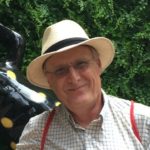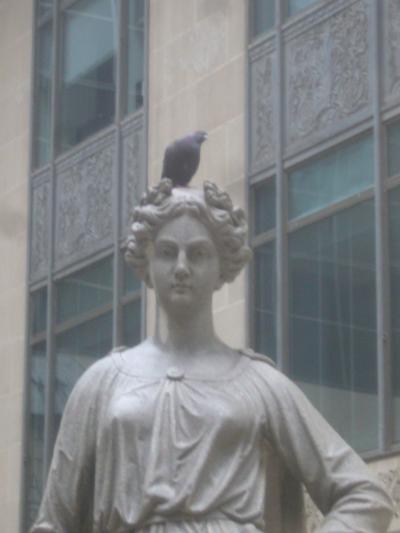
Originating as a field trip for students completing our Progress & Poverty course, this stroll thru downtown Chicago examines some of the ways that average people, and the community as a whole, are deprived of their just earnings. Among other things we’ll see who benefits from the expensive infrastructure and “economic development” projects, how Thomas Jefferson wanted Chicago to fund its public schools, what happens when a well-located building burns down, and how land speculators get their taxes paid by productive workers. Hardcopy sourced notes will be provided. Expect to walk about 2 km; maybe we’ll stop for snacks (individual settlement) along the way.
A $10 donation is requested from those who are not recent or current HGS students or donors, but nobody will be excluded due to lack of funds. If you have a paypal account, you can make your donation by credit card using the link below, or better yet bring cash or a check.
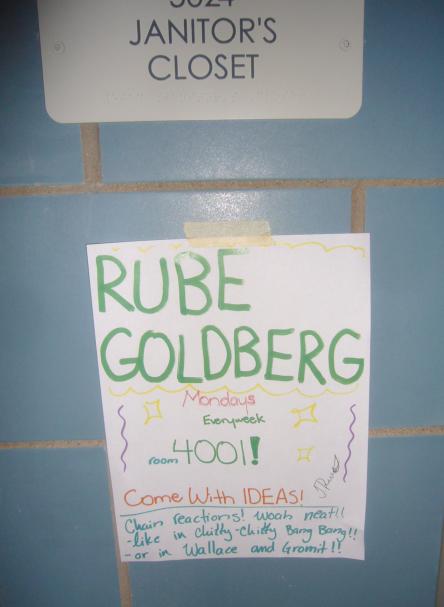
Would Rube Goldberg have been able to design a less straightforward system of funding government than the U S Federal income tax? In this presentation, HGS instructor Bob Jene looks at what it costs to collect this revenue. The direct cost to the government of operating the Internal Revenue Service is only a small part, as the burden put on the taxpayer, and the diversion of effort from productive uses, should also be considered.
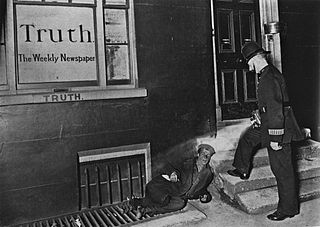
The People of the Abyss (1903) is a book by Jack London (1876-1916) about life in the East End of London in 1902. He wrote this first-hand account by living in the East End for several months, sometimes staying in workhouses or sleeping on the streets. The conditions he experienced and wrote about were the same as those endured by an estimated 500,000 of the contemporary London poor. Decades later, this book inspired George Orwell to write Down and Out in Paris and London.
A bit late to be a contemporary of Henry George, Jack London lived mainly in northern California and was a passionate advocate of workers’ rights. Both London and George were members of Bohemian Grove.
(source: Wikipedia)
The People of the Abyss is available free on line as text from Gutenberg, and as an audiobook from LibriVox, as well as in hardcopy from various libraries and book dealers.
Political Economy Book Club is open to everyone wishing to participate in the discussion, without charge altho donations are appreciated to help pay for rent and snacks. Convenor Bob Matter appreciates an RSVP from those planning to attend.
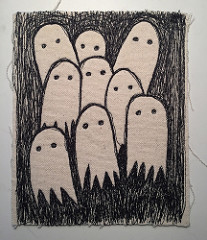
Right on the streets of every American community, robbery takes place every working day. You might not realize how much value the people of Chicago (and every other community) create, simply by going about our daily activities. What is this wealth, how do we create it, and where does it go?
Originally conceived as a field trip for Progress & Poverty students, this stroll — about 2 km and 90 minutes — presents some answers for those interested in finding out. Additionally, we’ll take a look at recovered loot of a long-ago theft, learn how Thomas Jefferson proposed to finance Chicago’s public schools, and see an economic development incentive that costs less than nothing. We might stop for snacks along the way (individual settlement).
Detailed sourced notes will be provided. This is now a free tour, no donation required, although we do appreciate (tax-deductible) contributions from those who can afford it and find the event worthwhile.
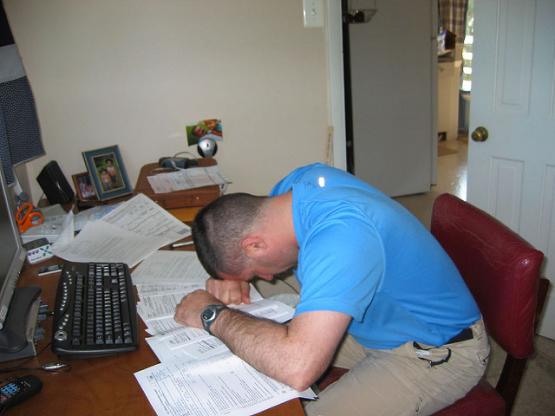
Do we need to suffer like this (and/or pay someone else) in order to fund government? In this presentation, HGS instructor Bob Jene looks at what it costs to collect income taxes. The direct cost to the government of operating the Internal Revenue Service is only a small part, as the burden put on the taxpayer, and the diversion of effort from productive uses, should also be considered.
“The purpose of Newspeak was not only to provide a medium of expression for the world-view and mental habits proper to the devotees of IngSoc, but to make all other modes of thought impossible. It was intended that when Newspeak had been adopted once and for all and Oldspeak forgotten, a heretical thought – that is, a thought diverging from the principles of IngSoc – should be literally unthinkable, at least so far as thought is dependent on words.“
— George Orwell
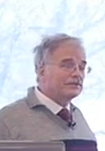
Something like this has happened to the field of economics, says Dan Sullivan. Terms which had clear meanings to Adam Smith, J S Mill, and other classical economists have got distorted and redefined– or obliterated– to prevent serious discussion of economic issues. Going back to the roots of political economy, Dan suggests the real point of a proper science of economics would be to efficiently satisfy the desires of the people, both individually and collectively.
Dan will help us distinguish between “rights” and “privileges,” “investments” and “acquisitions”, and several distinct concepts that all get called “wealth.” He’ll address the difference between “means of production” and “capital,” and differentiate “human capital” from modern slavery.
You can understand today’s economic issues such as minimum wages, tax policy, international trade, housing costs, and unemployment, but only if you have a clear idea of the fundamental terms. These terms can be readily comprehended by ordinary people and do not lead to any particular “left” or “right” public policy, but they facilitate informed communication.
There will of course be time for questions and discussion.
Based in Pittsburgh, Dan Sullivan is a popular speaker on economic issues, and Director of Saving Communities
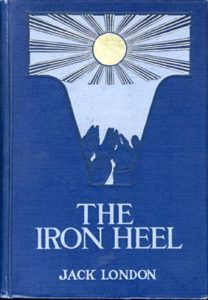 Bob Matter’s Political Economy Book Club is reading Jack London’s dystopian novel The Iron Heel. On June 25 we’ll discuss chapters 1-13, and on July 23 chapters 14-25. This 1908 text is available free from Project Gutenberg, in hardcopy from some public libraries, or as an audiobook. You can buy used hardcopies for < $10 from several vendors.
Bob Matter’s Political Economy Book Club is reading Jack London’s dystopian novel The Iron Heel. On June 25 we’ll discuss chapters 1-13, and on July 23 chapters 14-25. This 1908 text is available free from Project Gutenberg, in hardcopy from some public libraries, or as an audiobook. You can buy used hardcopies for < $10 from several vendors.
We’ll meet at the East Loop location of Bridgeport Coffeehouse, 73 E Jackson Blvd.
 Bob Matter’s Political Economy Book Club concludes its discussion of Jack London’s dystopian novel The Iron Heel. On July 23 we treat chapters 14-25.
Bob Matter’s Political Economy Book Club concludes its discussion of Jack London’s dystopian novel The Iron Heel. On July 23 we treat chapters 14-25.
We’ll meet at the east loop location of Bridgeport Coffee, 73 E Jackson.
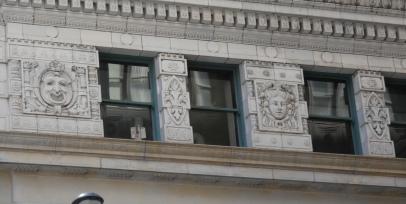
Right on the streets of every American community, robbery takes place every working day. You might not realize how much value the people of Chicago (and every other community) already create, simply by going about our daily activities. You’ll learn how we could comfortably produce much more, if only a smart tax policy were put in place.
Originally conceived as a field trip for Progress and Poverty students, this stroll — about 2 km and 90 minutes — presents some answers for those interested in finding out. Additionally, we’ll take a look at recovered loot of a long-ago theft, learn how Thomas Jefferson proposed to finance Chicago’s public schools, see some infrastructure that you probably didn’t know about, visit a shopping mall that you paid for but don’t own, and glimpse a billionaire’s downtown garden.
Detailed sourced notes will be provided. This is now a free tour, no donation required, although we do appreciate (tax-deductible) contributions from those who can afford it and find the event worthwhile.
Please sign up using the Eventbrite link.
Please register for this Zoom Webinar by clicking the green registration button.
David Wilson, author of the forthcoming book Towns Along the Q, will discuss the consequences of certain disastrous and discriminatory housing policies that he has become familiar with in the course of researching the topic, development of Chicago’s western suburbs along the Chicago Burlington & Quincy Railway.
